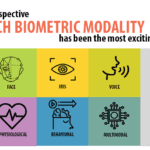“Transparency is the only way to build trust into the business of biometrics.” – Isabelle Moeller, CEO, Biometrics Institute

The biometrics industry needs to find its ethical compass on facial recognition technology, and needs to be transparent about it. That’s one of the key takeaways from the Biometrics Institute‘s month-long Online congress, the organization says.
The Biometrics Institute notes that when delegates in the Congress’s “facial recognition in focus” session were asked whether the biometrics community was doing enough in terms of messaging about the ethical use of facial recognition, only 23 percent said yes. Other polls of Congress attendees found that 96 percent of respondents agree that standardized testing is important for the future of the industry.
Together, those results offer a clear message about how the biometrics industry needs to move forward, says Biometric Institute chief executive Isabelle Moeller. “We need to define what good looks like and be transparent about our processes,” she concluded. “Transparency is the only way to build trust into the business of biometrics.”
The findings get to the heart of a key tension in biometric facial recognition today: even as consumers demonstrate enthusiasm about using biometrics to unlock their smartphones and confirm their identities online, there are series concerns about how biometric technology is used by police and other government agencies, and about the prevalence of racial bias in facial recognition algorithms. Transparency and uniform standards can help to address these issues.
On that note, some of the key themes of the online Congress highlighted by the Biometrics Institute include the ideas that ‘testing is critical’, that ‘better education of the public and of decision-makers is essential’, and that there is a ‘need to build trust amongst the public and address the fear of surveillance’.
Such efforts can help to validate the excitement about biometrics that those in the industry continue to maintain, with 92 percent of Congress delegates saying they feel “optimistic about biometric opportunities over the next 12 months.”
Commenting on that enthusiasm during the Congress, Moeller said, “No sooner did it close its virtual doors than we are making plans to continue the trusted and diverse conversations on the responsible and ethical use of biometrics to enable our members to better serve the people who rely on the decisions they make.”
–
November 9, 2020 – by Alex Perala







Follow Us